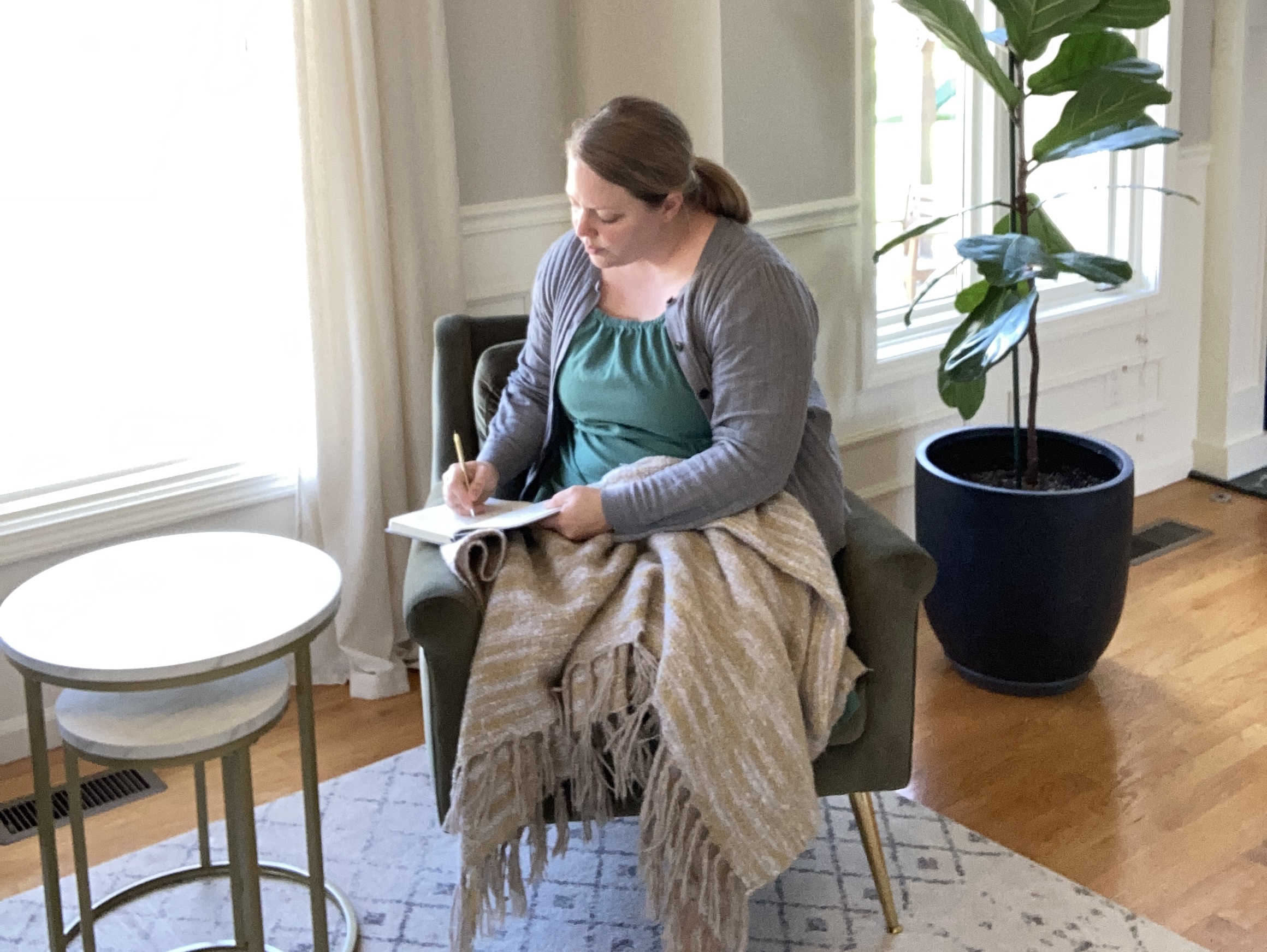DISCLAIMER: The following post outlines the writer’s personal journey with Postpartum Depression. It is not intended to act as medical advice. As always, please consult your doctor with any questions about your mental health.
TRIGGER WARNING: This post contains depictions of suicidal thoughts.
I shifted the car into park and dropped my head onto the steering wheel. “This cannot be my life,” I thought. I was in the parking lot of a mental health hospital, about to voluntarily check myself in for treatment.
I was experiencing severe Postpartum Depression. At my lowest point, I was in the middle of raising three beautiful children. And I asked my therapist how bad it had to get for me to be hospitalized. My symptoms had become unbearable, and I was desperate to find a way to feel better. I realized I needed more than my medication and twice-weekly appointments with her could provide.
She compassionately referred me to a specialized Mother-Baby support program. And, she assured me that she would coordinate care with them and support me when I came back home. After securing childcare for a whole week and driving across the state to Grand Rapids, there I was. I was ready to admit how much I was struggling. I felt simultaneously apprehensive and comforted.
The Statistics on Perinatal Mood and Anxiety Disorders
According to the National Library of Medicine, up to 1 in 5 mothers will experience a Perinatal Mood or Anxiety Disorder (PMAD) during pregnancy or postpartum. Although often referred to simply as “Postpartum Depression,” they are actually a spectrum of disorders that include depression, anxiety, panic disorder, obsessive compulsive disorder, post-traumatic stress disorder, bipolar disorder, and psychosis, and they can occur both during and after pregnancy, as shared by Postpartum Support International.
According to the American Medical Association’s JAMA Network, mental illness is the top cause of maternal mortality in the US. However, more than 70% of cases go undiagnosed or untreated due to stigma, lack of awareness, and scarcity of specialized treatment options, according to Postpartum Support International. Let that sink in for a moment. Less than 30% of mothers receive the mental health treatment they need during the perinatal period.
A Decision to Take Care of Me
Thankfully, I was able to receive the treatment I needed for Postpartum Depression.
I asked my therapist about hospitalization because my symptoms were making the everyday functions of life feel like impossible hurdles. Getting out of bed, showering, and feeding myself felt as though they were just too much trouble to go through. Making my kids’ meals, picking the older ones up at the bus stop on time, or helping with their homework felt beyond impossible to accomplish. I was battling constant negative thoughts, including some scary ones that tried to persuade me my children would be better off without me.
For a long while, I convinced myself that as long as there were decent days mixed in with the bad ones, everything was fine. When I struggled, my excuse to my kids was, “Mommy’s just having a bad day.” Well one day, when my six-year-old daughter replied with concern in her eyes, “But you were having a bad day the other day too,” my heart absolutely shattered. I knew that I would never be able to care for my children in the way that they deserved if I did not first do something to heal myself. And in my case, that meant leaving them for a week and checking into a hospital.
The Program That Saved My Life
The specialized nature of the Mother-Baby program at Pine Rest means it’s not what you might picture when you imagine a mental health hospital (someone once asked if it’s like One Flew Over the Cuckoo’s Nest, and let me assure you, it’s not). There are quilts on the wall. And, a sticky note affirmation board written by previous program participants. If one speaks to you, you’re welcome to take it.
Participants wear regular comfortable clothes and one mom while I was there even brought her guitar to play between sessions. The program consists of group and individual therapy, medication management, psychoeducation, and the use of complementary therapies (I participated in included aromatherapy, zen tangles, and guided meditation sessions while there).

I learned an incredible amount during that week. One of the most potent lessons was that self-care in motherhood doesn’t always look like yoga classes or locking yourself in the bathroom while you wolf down chocolate. Sometimes (and actually more often than not), it’s doing the hard things to make sure you are taken care of.
That might mean putting up with a screaming kid in a stroller while taking your afternoon walk in the sunlight. That might mean putting up with the whining that “we don’t want this for dinner” because you can’t cook multiple meals but it’s important that you get something healthy and nourishing to eat. It might mean putting your kid in front of a screen again so you have time to journal every day.
I sincerely believe this program helped save my life. At the same time, I am cognizant of all my privileges that afforded me the ability to attend and the statistics demonstrating just how many moms do not access the appropriate level of care. It will require collective action for things to change, and I sincerely hope to be part of that change.
Maternal Mental Health Resources
If you or someone you know is struggling with a PMAD, let me be the one to tell you that things can get better. It won’t be like this forever. As discussed in this post, there are important benefits to receiving treatment.
To find support, visit the Detroit Mom-Approved Guide to Therapists In and Around Detroit. Also, join Detroit Mom’s Mental Health Community Group or the Anxious Moms Support Group on Facebook. And, look out for information about regular free meetups.
**If you are in an immediate mental health crisis, please call 988 for the National Suicide + Crisis Lifeline.











